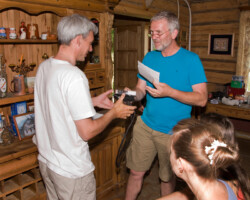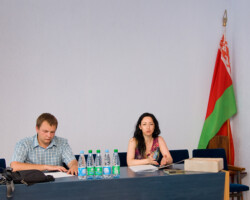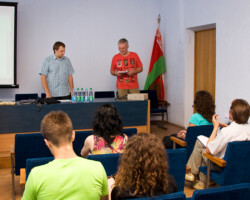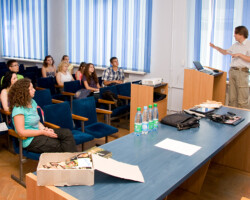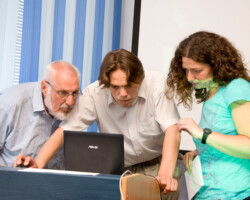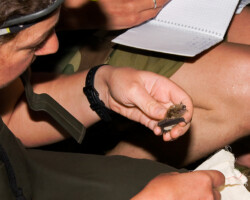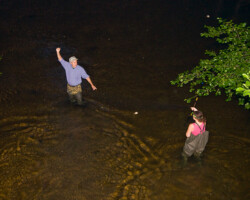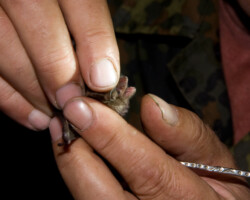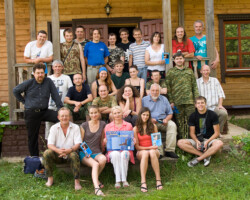25 Participants at bat workshop in Belarus
July 14, 2012
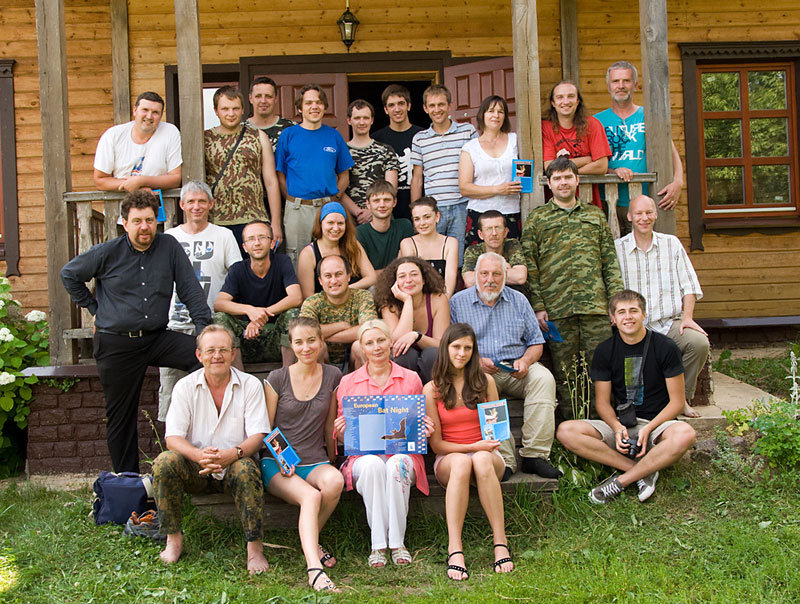
From 2 to 7 July a workshop about bat research and conservation took place in Belarus. Actually it was a seminar of one day and a workshop of three days. The seminar was held at the Academy of Science in Minsk. Students biology and forestry were invited for the seminar. The workshop was held in the Voloshin district just outside Minsk. Besides students also professional researchers were invited for this workshop.
The number of participants of the seminar was a bit disappointing: 10. Of which 8 were students and 2 were representatives of the Belarusian Ministry of Natural Resources and Environmental Protection. However, the two representatives liked the seminar so much that they stayed the whole day, instead of leaving immediately after their welcome words. Of course we took advantage of this opportunity and asked if one of them liked to become the Focal point for Belarus at the Bats Agreement (EUROBATS). Belarus did not (yet) sign the Agreement, but they can come to the meetings of the Advisory Committee and exchange experiences about bat research and conservation with other European countries. A preliminary 'Yes' was the answer.
More people attended the three days’ workshop. Twentyfive people from different parts of Belarus came, both professionals and students. That is five times more than the number of people working on bats in Belarus at that time. In the afternoons presentations about bats (species identification, ecology, threats, diseases etc.), research methods and conservation measures were given. At night we went out to look for bats with the use of bat detectors and mistnets. The mornings were used to catch up the lost sleep.
Peter Lina from the Netherlands and Lena Godlevska from Oekraine gave the presentations. Lena and Fons Bongers (also from the Netherlands) explained the use of bat detectors and mistnets. Six, possibly seven, species of bats were recorded during the fieldwork:
- Myotis daubentonii - Daubenton's bat
- Eptesicus serotinus - Serotine
- Eptesicus nilssonii - Northern bat
- Nyctalus noctula - Noctule
- Pipistrellus pipistrellus - Common pipistrelle
- Pipistrellus nathusii - Nathusius' pipistrelle
- (Pipistrellus kuhlii - Kuhl's pipistrelle)
The sightings (actually hearings) of the Kuhl's pipistrelles still have to be confirmed by analysis of the sound recordings.

Thanks to a gift of the Mammal working group of the Dutch province of Zuid-Holland we could buy ten bat detectors. These were given to participants of the workshop, so that they could immediately implement the knowledge gained during the workshop. And in fact they did, because after returning to Minsk, the participants from this city asked us for an extra night excursion to improve their experience. We went with them to a park along the river Svislach. With the bat detector we heard about three species of bats and possibly also found a colony of Kuhl's pippistrelle. We could not localise the exact location of their dwelling. So, this is a nice task for the new owners of the bat detectors.
Now it is up to the Belarusians to improve their skills in bat research and their knowledge about the bats in Belarus. We are convinced that the Belarusian project partners (the Bat working group of APB BirdLife Belarus and the Academy of Science in Minsk) will take care of this. They and the participants of the workshop agreed that all new owners of bat detectors will report every year about their use of the bat detector and their findings. If they don't use the detector for a year it will be given to someone else. All reports will be made public on the website of APB, so that knowledge and experience is shared and the network of bat specialists in Belarus can grow. We hope to meet many more bat specialists when we visit Belarus again in a few years.
Here you find a short report of the workshop in the Belarusian language.
Click the image for pictures of the seminar and the workshop:
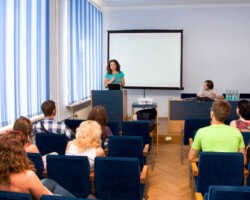
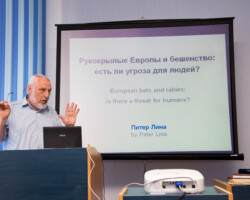
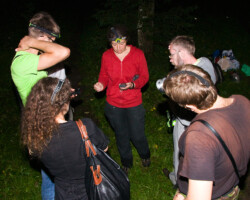
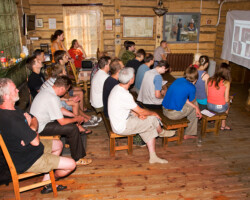

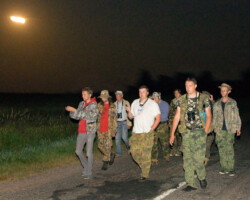
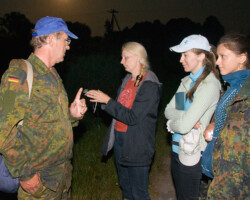
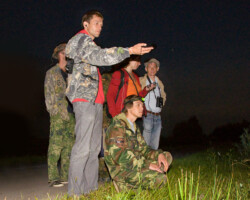
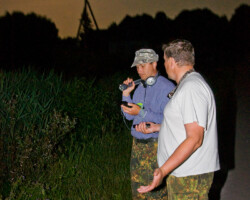
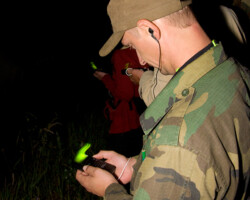
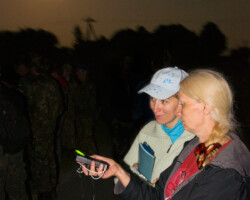
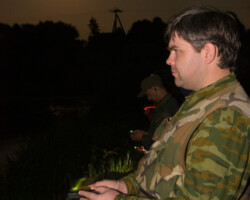
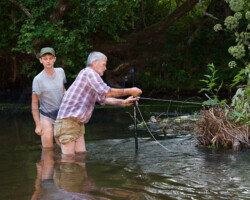
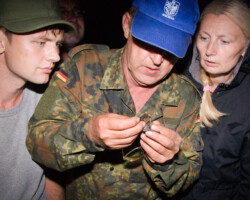
We want to thank Herman Limpens for sharing his power point presentation about bat research and conservation with us. Lena Godlevska translated the presentation in Russian.

